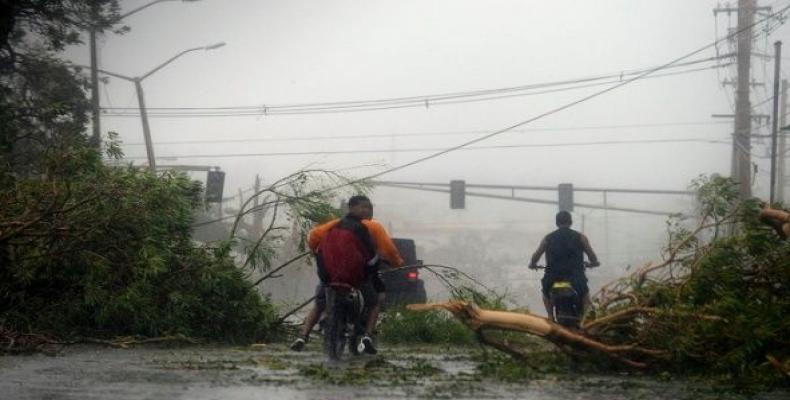San Juan, May 30 (RHC)-- According to a research team led by scientists at the Harvard T.H. Chan School of Public Health, nearly 5,000 people died in Puerto Rico due to reasons related to September's category 4 Hurricane Maria. The new estimate stands in stark contrast to the official death toll of only 64.
The study published Tuesday in the New England Journal of Medicine surveyed 3,299 randomly chosen households in the island and asked the occupants about their experiences, who reported a total of 38 deaths. The scientists then extrapolated that finding to Puerto Rico’s total population of 3.4 million and subtracted deaths recorded during that same period in 2016.
Using that methodology, researchers found that between September 20 and December 31, there were 4,648 “excess deaths” that would not have occurred if Puerto Rico hadn’t been plunged into a prolonged disaster after the hurricane. The official death toll only includes deaths directly related to the storm. However, several studies report higher numbers.
The federal response to the environmental disaster has been criticized by many within and outside of the island for being unable to secure basic services, such as electricity. The study notes that for more than 100 days 83 percent of Puerto Rican households remained without electricity.
"In our survey, interruption of medical care was the primary cause of sustained high mortality rates in the months following the hurricane," the study states. Infrastructural damage made it difficult for hospitals and doctors to provide care, and for people to get to the doctor or the hospital to seek medical care.
According to the survey one-third of the total deaths in the months following the storm were caused by interruption in health care provision. The study allowed researchers to conclude that the mortality rate in the island jumped by 62 percent in the three months immediately after the storm.
Hurricane Maria's death toll in Puerto Rico nearly 5,000, 70 times higher than official count

Matérias relacionadas
Comentários
Deixe um comentário
Todos os campos são requeridosMais vistas
- Trump se vangloria de mensagem triunfalista ao Congresso dos EUA
- China e Cuba sublinham o contributo das mulheres para a sociedade
- Cuba estreia sem vitórias na Copa do Mundo de Boxe Juvenil
- Em Cuba selecionam os livros de arte mais relevantes de 2024
- Inteligência artificial facilita diagnóstico precoce de doenças

